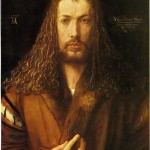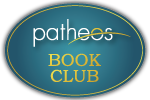Election season is winding down. We will all breathe a sigh of relief when it’s over (or half of us will)
The political machine seems driven around something quite basic to humanity: narcissism. In political discourse we hear a lot about the “common good,” and the “state of the country.” But whether the topic is the economy (and jobs, jobs, jobs), foreign policy, healthcare, or social security, or medicare, every issue seems to funnel through the lens of me. And you. The political machine knows it–and makes the most of it.
I’ve been reading the fascinating (and Pulitzer Prize winning) book by Ernest Becker, The Denial of Death. In his introduction, Becker argues (building on Freud, Alfred Adler, and Otto Rank) that the most basic and predictable characteristic of human beings is our narcissism. If it came down to it, I could “fill whole world all alone.” In children, this narcissism is unmasked. We learn, over time, to cover it up and suppress it. Most of us become masters at keeping our narcissism in check (or at least disguising it), making it practically indistinguishable from “a basic sense of self-worth.”
This sense of self-worth takes a certain shape in an inner need to be heroic. We all want to “stand out, be a hero” and make a lasting contribution to the world. A society, Becker says, is a cultural hero system, “a structure of  statuses and roles, customs and rules for behavior, designed to serve as a vehicle for earthly heroism.” Within this system, some are better situated to achieve heroic status (wealth, education, status, fame, etc.), while others scramble to grab whatever pieces of the hero pie are left over. Many of us, in the middle class, strain for just a little more security and stability, and a tad more prestige. If only we can make some small but lasting imprint in the sandbox we’ve been given, all will be well. But wherever we are on the hero ladder, however big our imprint in the sandbox, we look to our politicians to either preserve our heroic status or give us more.
statuses and roles, customs and rules for behavior, designed to serve as a vehicle for earthly heroism.” Within this system, some are better situated to achieve heroic status (wealth, education, status, fame, etc.), while others scramble to grab whatever pieces of the hero pie are left over. Many of us, in the middle class, strain for just a little more security and stability, and a tad more prestige. If only we can make some small but lasting imprint in the sandbox we’ve been given, all will be well. But wherever we are on the hero ladder, however big our imprint in the sandbox, we look to our politicians to either preserve our heroic status or give us more.
For Becker, the problem is not that societies are cultural systems for generating a sense of the heroic (and thus, a “denial of death”), but that we repress our natural urge to heroism. Becker suggests that were we all to admit our urge to heroism, it would “release such pent-up force as to be devastating to societies as they now are.” It would unleash a
…devastating release of truth. It would make men [sic] demand that culture give them their due–a primary sense of human value as unique contributors to cosmic life. How would our modern societies contrive to satisfy such an honest demand, without being shaken to their foundations?
The cultural systems of our society provide countless avenues for repressing our heroic urges. As for me, I’ve just discovered a week of free NBA League Pass. That should keep me pretty well satisfied through the election. What do you have?
But seriously, I wonder whether the Christian gospel, the transformation of redemption in Christ, and the community called “church” do not offer some kind of counter to our primal, narcissist impulse? Is it possible to drastically change the filter of our natural urge to heroism and to let the genuine needs of others be our ultimate criterion through which we imagine our political future? Is it possible to, instead of reacting primarily out of our fear of a loss of strength, power, privilege and influence, to “consider others better than yourselves” and to “look not to your own interests” (Phil 2:3-4)? Isn’t the voluntary self-denial of privilege (for those who have enough to give up) what the gospel means by heroism? Is this not especially pressing for those Christians who already have a pretty big sandbox and a sizable imprint–who are already well-positioned on the cultural hero ladder? Or is there just too much to lose?












